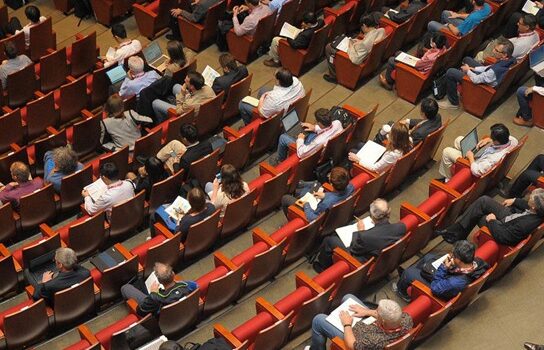From the Executive Director: Board Meeting Highlights
From the Executive Director Walter Bacak, CAE walter@atanet.org The American Translators Association’s Board of Directors met April 9-10, 2022 in Alexandria, Virginia. The Board…
Read MoreFrom the President-Elect: ATA63 Will Be an Event to Remember!
From the President-Elect Veronika Demichelis veronika@veronikademichelis.com The call for proposals for ATA’s 63rd Annual Conference in Los Angeles, California, closed on March 1. We…
Read MoreFrom the President: Change for the Better
From the President Madalena Sánchez Zampaulo president@atanet.org Twitter: @mszampaulo As we near the end of the second quarter of 2022, I’m pleased to tell…
Read MoreDemystifying ATA’s Certification Exam: Better Off “Literal” or “Free”?
A common misconception about ATA’s certification exam is that candidates must translate literally or word-for-word to be successful. Even those who aren’t susceptible to…
Read MoreEnhanced Productivity with Text Expansion
Note: The following was originally published in Deep Focus, the newsletter of ATA’s Audiovisual Division: www.ata-divisions.org/AVD. I haven’t typed my full name or email…
Read MoreHow to Get Out of a Marketing Rut in Your T&I Business
So many people would love to make marketing a habit in their translation or interpreting freelance business, but it can be easier said than…
Read MoreInterpreting in Rural Communities
Language access services that provide community interpreting remain concentrated in urban centers. As such, rural communities must rely upon remote access, a model that fails to account for the cultural specificity of rural life and livelihood. How are interpreters in rural communities adapting to meet the increased need for language access?
Read MoreLiterary Translation: Finding Focus in Its Fuzzy Borders
What makes literary translation challenging is also what makes it interesting. A good translation should respect and reflect the author’s style and vocabulary, but this doesn’t mean that every single word or phrase you choose has to perfectly resemble the author in style and effect. Let’s explore some of the frequent challenges faced by literary translators, such as making the voice of a character sound authentic and translating names and places with intentional meanings or symbolism.
Read MoreDynamic Duos: How Interpreters and Speech-Language Pathologists Collaborate to Serve Children with Disabilities
Interpreting and speech-language pathology are professions centered in language and communication. So, what happens when these worlds meet? Learn how speech-language pathologists and interpreters in Minnesota have collaborated with the Minnesota Department of Education to develop dynamic training workshops to help language professionals serve linguistically diverse school districts.
Read MoreBecoming a Mentor: Giving Back and Leveling Up
Mentoring someone isn’t just about sharing wisdom, passing along expertise, or supporting the development of (future) colleagues. Mentoring is also expected to benefit the mentor. Whether you’re working with a student, a new professional, or a colleague, the interactions you have as a mentor will lead you to reflect more critically and deeply on your professional practice.
Read MoreSummary of the ATA Compensation Survey
To address the need for a comprehensive picture of the market for translation and interpreting services, ATA recently conducted a compensation survey. The ATA Compensation Survey serves to provide professional practitioners and others with an overview of the income and pay rate data of translators, interpreters, and company owners working in the U.S.
Read More

